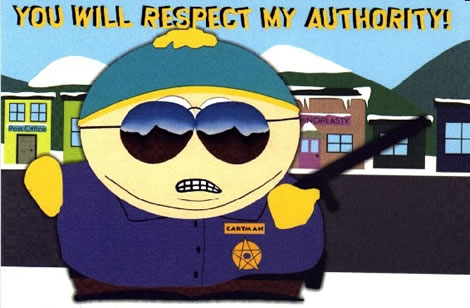Over the last few days I’ve received a few questions from some residents, concerned about Tricia Mezzacappa, West Easton’s Constable. Specifically, about her issuing “tickets” to people within the borough. Constable was a long abandoned position that remained on the ballot. She obtained it unopposed, at the last election.
To correct residents that believe she has issued “tickets,” I am not aware of her actually issuing citations requiring a payment of a fine, or a court appearance. However, I am aware that she has been handing out warnings and that people are assuming she is acting at the direction of West Easton Borough. A warning from her was first reported by blogger Bernie O’Hare and it involved a neighbor of hers that she alleged disturbed the peace. The newest warnings this week were placed on vehicles (at least two, if my source is correct) that she alleges haven’t been moved in accordance with West Easton ordinances.
People are incorrectly believing that Ms. Mezzacappa is working under direction of the West Easton Council.
She is not.
Mezzacappa has not been employed by West Easton to act in any type of role as a code or ordinance enforcement officer for the borough. She is acting independently on her belief that she is within her Constable responsibilities.

I should make it clear that, as of this writing, I am not aware of Ms. Mezzacappa asking any compensation from West Easton for her actions, nor will any be offered, because she was not requested to take action against residents or property owners.
This is as it should be. State Constables do not receive compensation from municipalities.
In the last election, Ms. Mezzacappa asked people to write in her name for Constable as they entered the polling station. She received just enough write-in votes (only 10 were required). It gave her a position of “peace keeper” and one she apparently intends to test within our borough.
While Constables primarily serve the Courts, they belong to the executive branch of state government.
That said, an overwhelming majority of people have no clue of what a Constable can and can not do in the performance of their duties.
The following are excerpts from a Constable owned website:
Constables are not considered employees of any municipality, county or state. A Constable only gets paid for services they perform. They do not maintain a salary. Constables are paid in two ways; by the “plaintiff” in a civil action, and by a “defendant” in a criminal action. Fees paid to a Constable are regulated by Act 49 of 2009 and are collected by the judiciary and, generally, paid to the Constable by the county financial controller. The Constable does not usually get paid by taxpayer monies (except in special circumstances).
Additionally, Constables must provide for and pay for their own health and life insurance, professionally liability insurance (similar to that of a police department), and provide for their own equipment such as uniforms, duty equipment, and transport vehicles and related equipment.As previously mentioned, an Act 49 certified Constable can choose to serve the court system in much the same way as a Deputy Sheriff serves. Constables may perform any authorized service to the courts. These authorized services include the following: service of arrest or bench warrants (ranging from summary offenses such as parking tickets to felony offenses such as murder), service of civil process, service and processing of execution orders and levies, service and processing of evictions, service of PFA and other court-orders such as subpoenas, providing of court-room security, and transportation of prisoners for various purposes (hearings, fingerprinting, etc).
A Constable also has “warrantless” arrest authority, meaning he or she may make a detention of an individual who has committed a breach of the peace or felony crime in their presence and upon their view. An example of this would be an individual assaulting another individual in plain view of the Constable.
A Constable sounds a lot like a municipal or state police officer; is there a difference?
YES – there is a difference. A Constable may NOT enforce any provisions of the vehicle code (such as speeding, stop sign violations, etc), and they may NOT perform criminal investigations, which municipal and state police are authorized to do. For example, the neighbor of a Constable cannot contact him to investigate a burglary that was just discovered or to investigate vandalism to their vehicle.
Also, in general, Constables do not respond to emergency 9-1-1 calls, although many Constables do provide various types of law-enforcement related assistance to their local or state police agencies in many areas of the state. Many Constables provide back-up to their local agencies or provide crucial services at emergency scenes, such as traffic control and scene security.
A Constable, however, is most certainly, both by definition and by law, considered as a “Law Enforcement Officer”, and maintains much of the same type of ”police authority” that their brothers and sisters in municipal or state police departments have while performing their court duties, such as the service of arrest warrants.
Additionally, assaulting a Constable is graded as a felony and held in the same regard as assaulting a municipal police officer, sheriff, game warden, etc.
The clearest difference between a “police officer” and a “Constable” is that a Constable maintains both civil and criminal authority or duties, while police officers maintain only criminal authority and duties. In other words, a police officer cannot perform an eviction while a Constable can, and a Constable cannot perform a DUI traffic arrest while a police officer can.
While I may personally believe that Tricia Mezzacappa doesn’t have the temperament to be a Constable, given the power of warrantless arrest authority, she was elected to the position for a term of 6 years. Unlike Donald Trump, I accept that election results must be recognized in our democracy.
The Borough of West Easton, however, is in no way responsible for any actions she may perform during her term, whether constitutional, or not. She does not answer to the West Easton Council and the Council has given her no directions in enforcing borough ordinances. If she follows through on her current warnings, or possible citations to test her authority, she will have to do so as a “State Constable,” without enjoining the Borough of West Easton to assist her prosecution of alleged violators.
Disclaimer: On January 4, 2016, the owner of WestEastonPA.com began serving on the West Easton Council following an election. Postings and all content found on this website are the opinions of Matthew A. Dees and may not necessarily represent the opinion of the governing body for The Borough of West Easton.







